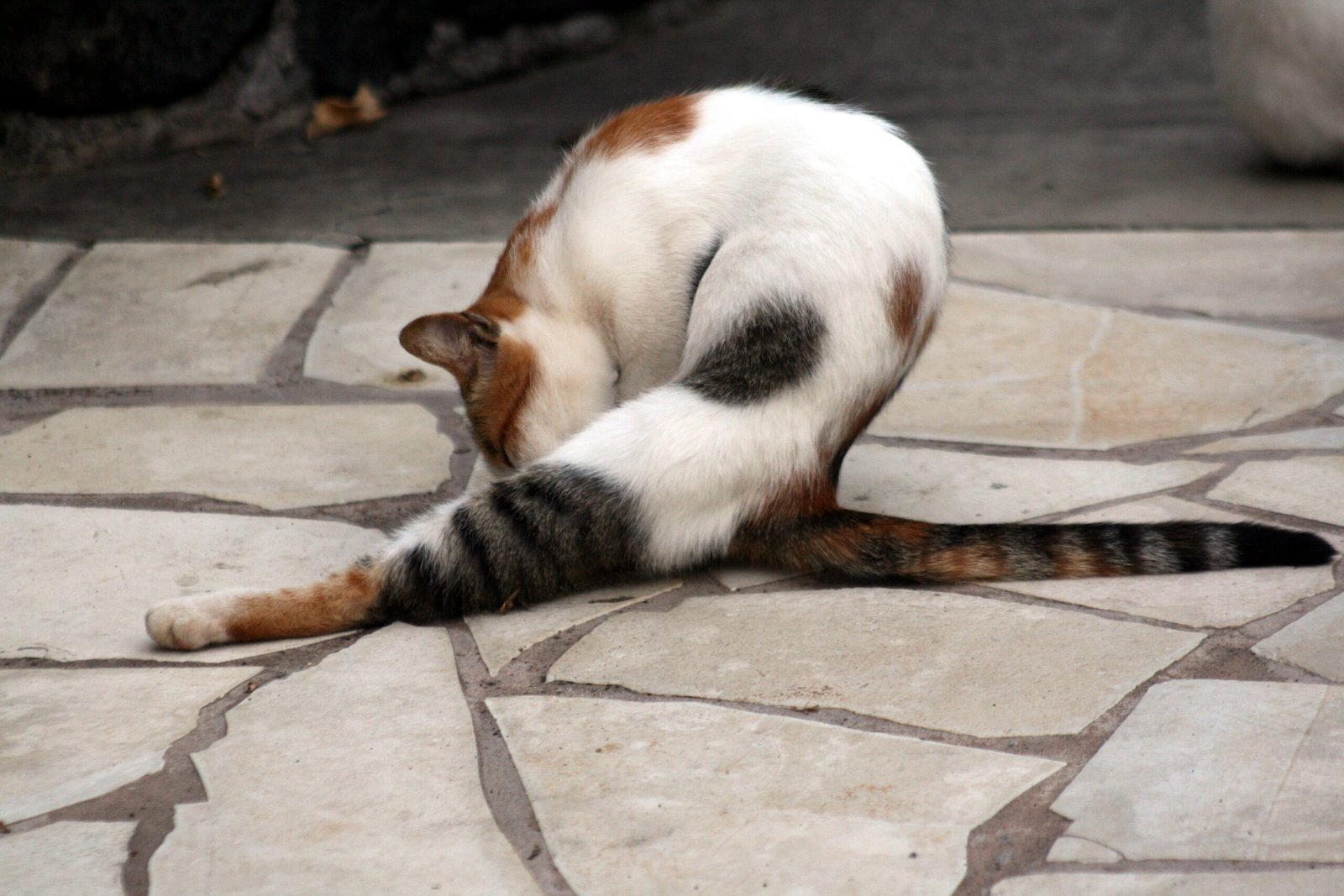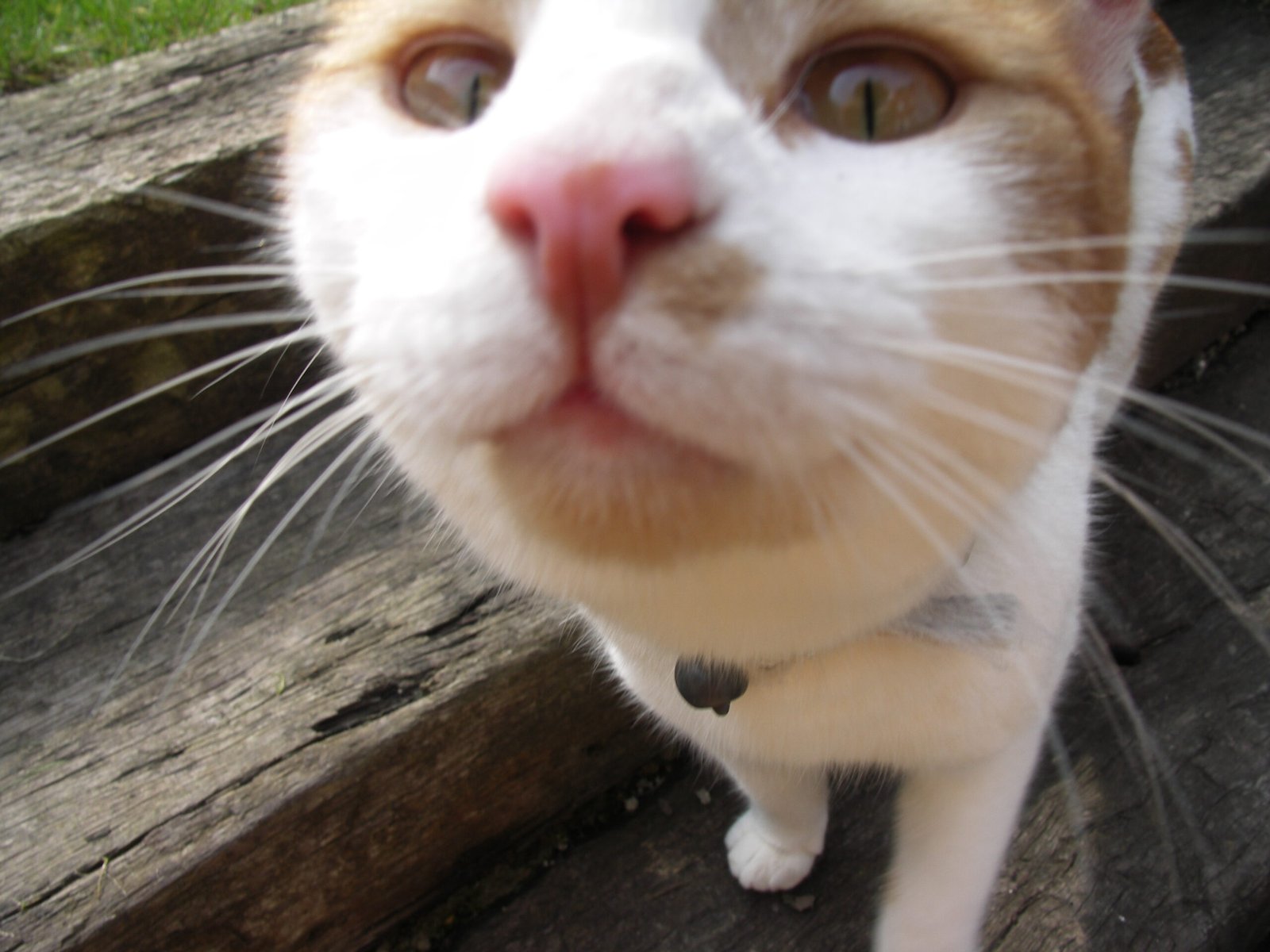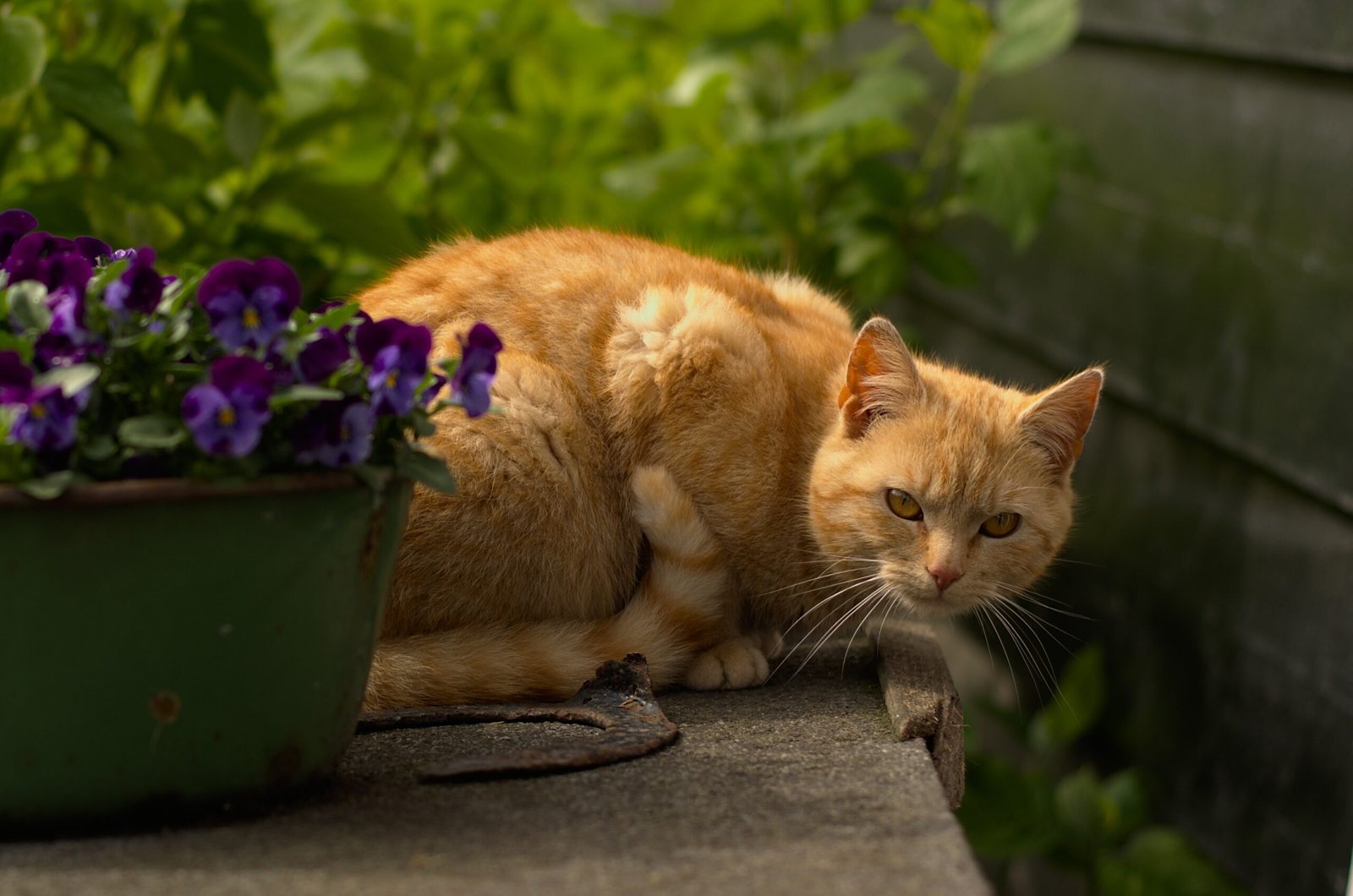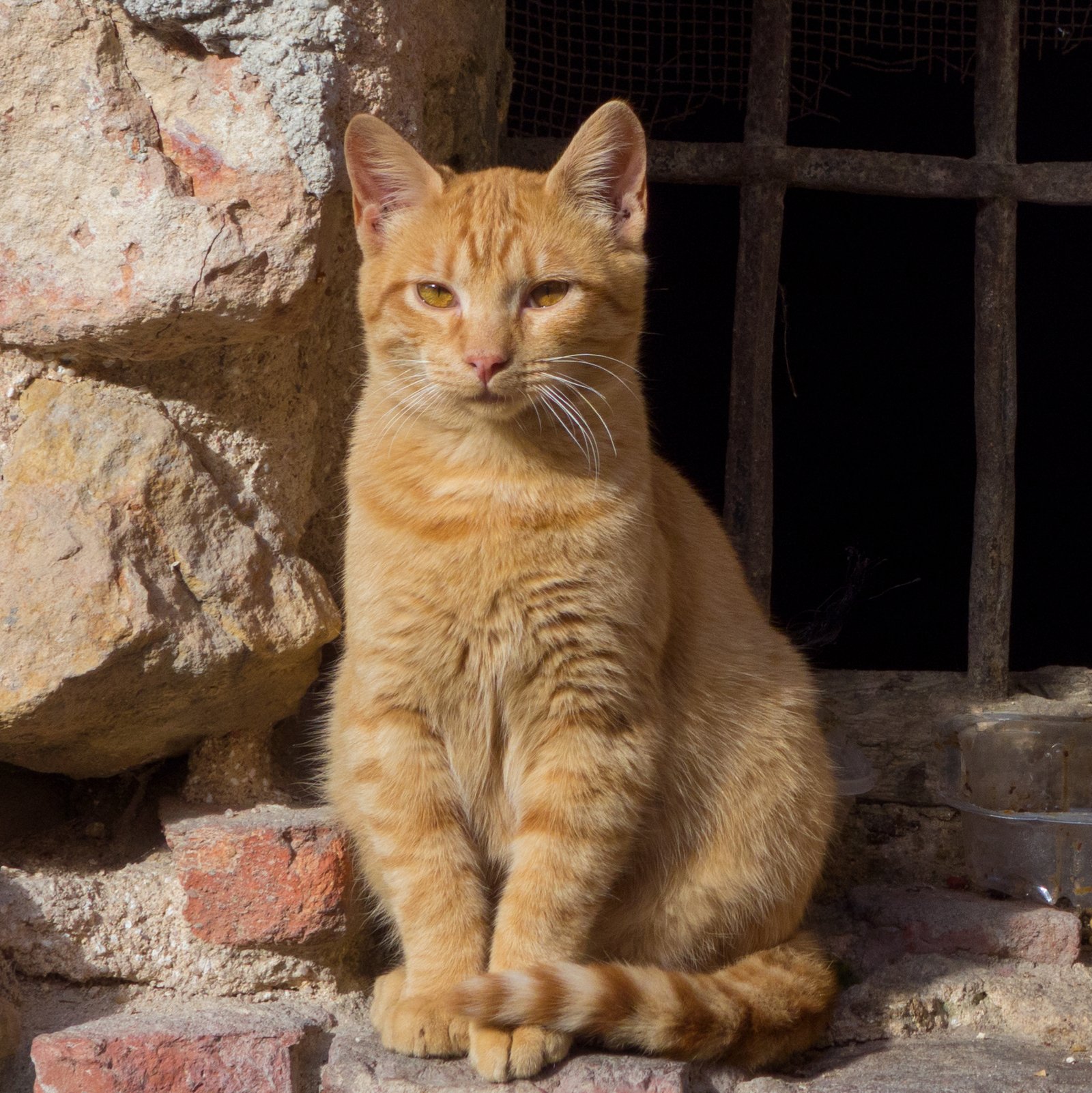Have you ever been lounging on the couch, only for your cat to suddenly hop off, disappear for a few minutes, and then stroll right back in as if nothing happened? If you’ve shared your life with a feline, you know this scenario all too well. It’s both mysterious and oddly touching—sometimes you can’t help but wonder what’s really going on in that little furry head. The truth is, when a cat leaves the room and then returns, it’s rarely a random act. Each exit and entrance can carry a world of meaning, from curiosity and comfort-seeking to secret feline rituals you might never have guessed. Let’s pull back the curtain on this everyday cat behavior and discover what your four-legged friend is really trying to tell you.
Seeking Independence: Cats Love Their Freedom

Cats are known for their independent spirits. When your cat leaves the room, it might just be their way of enjoying a bit of alone time. Felines cherish their personal space and often wander off to recharge away from the hustle and bustle. This isn’t a sign of rejection—think of it as your cat taking a short vacation from socializing. Even the most affectionate cats need a break from constant attention, just like people do. When they come back, it usually means they’ve had enough me-time and are ready to reconnect. Their little journeys are a reminder that, while they love you, they also love their autonomy. Watching your cat come and go is like seeing a friend who knows exactly when to step away and when to return.
Curiosity Calls: Exploring Their Territory

Have you ever noticed your cat’s nose twitching as they dart out of the room? Curiosity is practically their middle name. Cats have an instinctive need to patrol their environment and check for changes. When they leave, they might be investigating new smells, sounds, or even the slightest movement elsewhere in the house. This behavior goes back to their wild ancestors who needed to ensure their territory was safe and secure. After satisfying their curiosity, they’ll return to you, sometimes with a look of triumph in their eyes. It’s their way of saying, “Everything’s under control, human.” If your cat could talk, they’d probably tell you they were just making sure the world outside your room is still in order.
Security Checks: Instincts From the Wild

Cats are natural-born security experts. Even in the comfort of your living room, their instincts never truly leave them. When your cat exits the room, they might be conducting a quick security sweep—making sure there are no threats or surprises lurking nearby. This behavior is especially common in multi-pet households or if your cat is particularly alert. Once they confirm all is safe, they often return to their original spot. Their comings and goings are like a built-in alarm system, quietly ensuring their world (and yours) is safe. You might not hear a siren, but your cat’s movements are their own version of neighborhood watch.
Attention Seeking: Testing Your Reactions

Sometimes, a cat’s exit and return is nothing more than a cheeky attention-grab. Cats are clever; they often learn that leaving and re-entering a room gets their human’s attention. Maybe you call their name, shake a treat bag, or offer a cuddle. This little game becomes a way for them to see how much you notice their absence—and how much you miss them when they’re gone. It’s almost like they’re playing hide-and-seek, but with your emotions. When your cat pops back into the room, you can practically see the question in their eyes: “Did you miss me?” For many cat lovers, this routine is as endearing as it is mysterious.
Comfort and Reassurance: Returning for Safety

Leaving a room can sometimes make your cat realize how much they crave your presence. They might venture out, only to return moments later because they feel safest with you. Your scent, your voice, or simply your company can be a powerful comfort for a cat. Some cats even develop strong attachment bonds and can’t stay away for long. When they come back, they might curl up beside you, purr, or gently nudge your hand—tiny gestures that say, “You make me feel safe.” It’s a quiet but deeply touching sign of trust. If you ever doubted your bond, these returns are proof that your cat sees you as their home base.
Habit and Routine: Cats Love Predictability

Cats are creatures of habit. Leaving and re-entering a room might simply be part of your cat’s daily routine. Maybe they always check the kitchen after a nap, or inspect the hallway before bedtime. These predictable patterns help your cat feel secure and in control of their environment. You might notice your cat follows the same “patrol route” every day, almost like clockwork. When they return to your side, it’s just another step in their daily ritual. For cats, routines are comforting—like a favorite blanket or a well-worn path. So, if you see your cat making the same moves day after day, know that it’s their way of keeping life steady and safe.
Following Scents: Tracking Invisible Trails

Cats have incredible noses. Sometimes, when they leave a room, they’re following a scent trail only they can detect. Maybe it’s the lingering smell of food, a whiff of another pet, or even your own scent from earlier in the day. These invisible trails can lead your cat on mini adventures throughout the house. Once they’ve satisfied their curiosity, they’ll return, bringing back a world of scents with them. It’s a bit like following a map that only they can read. If you catch your cat sniffing around before they leave or after they return, they’re likely tracking something interesting you’ll never see.
Responding to Noises: Sound Sensitivity

Cats have super-sensitive ears. A faint creak, a distant bird call, or the hum of an appliance can catch their attention and draw them out of the room. They might leave to investigate the source of a noise that you barely even register. After checking it out, they’ll come back, sometimes with a curious or slightly startled look. This sensitivity to sound is another throwback to their wild roots, where being alert could mean the difference between danger and safety. If your cat seems to leave right after a sudden noise, you can bet they’re just double-checking their world.
Hunting Instincts: The Playful Stalker

Even the sleepiest housecat has a tiny tiger inside. Sometimes, your cat leaves the room with a burst of energy, only to come back moments later with a toy, a sock, or even nothing at all. This is their inner hunter at work. They might be “stalking” imaginary prey, practicing the pounce, or just releasing pent-up energy. When they return, they can seem extra playful or proud, as if they’ve just conquered a great beast. These moments are reminders that, beneath the cuddles and purrs, your cat still has a wild streak.
Watching Over You: Acting as a Guardian

It might sound surprising, but some cats take on the role of silent guardian. They’ll leave the room, circle around, and return as if checking to make sure you’re still safe and accounted for. This behavior is especially common in cats that feel a strong bond with their humans. You might notice them sitting just outside the doorway, almost like a sentry on duty. When they come back, they often settle nearby, content that all is well. It’s a quiet, watchful love—a way of keeping tabs on you without being overly obvious about it.
Boredom: Looking for Stimulation

Cats can get bored just like people do. If they leave the room, it might be because they’re searching for something new or exciting to do. Maybe the room has lost its charm, or they’re hoping to find a sunny spot or a new toy elsewhere. When they return, it could be because they didn’t find anything more interesting, or perhaps they just wanted a quick change of scenery. This coming and going is their way of keeping life lively and avoiding monotony. For cats, even the smallest adventure can be a cure for boredom.
Social Dynamics: Navigating Multi-Pet Households

If you have more than one pet, your cat’s movements might be influenced by the social dynamics at play. Leaving the room could be a way to avoid a clash with another animal, or to check on what a fellow pet is up to. They might return when they feel the coast is clear or if they want to rejoin the action. Cats are masters at reading social cues and adjusting their behavior accordingly. If you pay close attention, you can sometimes spot subtle “negotiations” taking place between your pets, all played out through these quiet comings and goings.
Testing the Waters: Checking for Changes

Cats are naturally cautious creatures. Sometimes, they’ll leave and come back just to see if anything has changed in their environment. Maybe you’ve moved a chair, brought in a new bag, or left a window open. These tiny changes can make a big difference in your cat’s world. Returning to the room gives them a chance to reassess the situation and decide if it’s still a comfortable place to be. This is their way of making sure everything is just right before settling in again.
Seeking Privacy: A Need for Solitude

Every cat, no matter how friendly, occasionally craves solitude. Leaving the room can be their way of finding a private spot to groom, nap, or just enjoy some peace and quiet. When they return, it often means they’re ready for company again. Just like people, cats need alone time to recharge. If your cat disappears for a bit and then comes back, it’s simply their way of balancing social time with personal space.
Medical Reasons: Discomfort or Restlessness

Sometimes, a cat’s frequent leaving and returning might signal discomfort or a medical issue. If your cat seems restless, paces from room to room, or can’t seem to settle, it could be a sign of pain, anxiety, or another health concern. Pay close attention if this behavior is new or accompanied by other symptoms like vocalization, limping, or changes in appetite. A trip to the vet might be in order to rule out any underlying problems. While most departures and returns are harmless, it’s always good to trust your instincts if something feels off.
Temperature Control: Chasing Comfort

Cats are experts at finding the perfect spot. Leaving the room often means they’re searching for a better temperature—maybe a sunny patch, a cool tile, or a cozy blanket. When they come back, it could be because the room has warmed up or cooled down to their liking. This constant quest for comfort is part of what makes cats so charming (and sometimes so fussy). If you see your cat drifting in and out, they might just be Goldilocks, looking for a spot that’s “just right.”
Hunger and Thirst: Checking Food and Water

A cat’s stomach is a powerful motivator. Sometimes, they leave the room simply to check if there’s food or water available. Even if their bowls are full, many cats like to “inspect” them multiple times a day. When they return, it’s often with a satisfied (or occasionally disappointed) look. This little ritual is their way of making sure all their needs are met. So, if your cat leaves and comes back, you might want to check if their dish needs a top-up.
Stress or Anxiety: Looking for Relief

Stress can make a cat restless. If there’s something new or unsettling in the environment—a new person, loud noises, or changes in routine—your cat might leave and return as a way of coping. Walking away helps them manage their anxiety, and returning means they feel comfortable enough to come back. If this behavior becomes frequent, try to identify any stressors and help your cat feel more secure. A calm, predictable environment can work wonders for a worried feline.
Bonding Rituals: Strengthening Your Connection

Some cats develop little rituals that help strengthen their bond with you. Leaving and returning might be part of a game or a routine you’ve unknowingly encouraged. Maybe you always greet them when they come back, or offer a treat when they reappear. Over time, this can become a comforting ritual for both of you. It’s a special way your cat says, “I like coming back to you.” These small moments add up, weaving the threads of your unique relationship.
Nighttime Wandering: The Late-Night Explorer

If your cat leaves the room at night and returns, you’re not alone. Many cats are crepuscular, meaning they’re most active at dawn and dusk. Nighttime explorations are often part of their daily routine. They might be checking windows, watching for nighttime critters, or just enjoying the quiet. When they come back to your bed or favorite chair, it’s a sign they’re ready to settle down again. These mysterious nighttime journeys are just another chapter in your cat’s secret life.
Personality Quirks: Every Cat Is Unique

At the end of the day, every cat is an individual. Some are social butterflies, while others are more reserved. The way your cat leaves and returns to a room can reflect their unique personality. Some cats make a dramatic exit and return, while others slip in and out so quietly you barely notice. Getting to know your cat’s quirks is part of the joy of sharing your life with them. Their habits, however small, are a window into who they are—and a reminder that every cat tells a different story with their comings and goings.
Hi, I’m Bola, a passionate writer and creative strategist with a knack for crafting compelling content that educates, inspires, and connects. Over the years, I’ve honed my skills across various writing fields, including content creation, copywriting, online course development, and video scriptwriting.
When I’m not at my desk, you’ll find me exploring new ideas, reading books, or brainstorming creative ways to solve challenges. I believe that words have the power to transform, and I’m here to help you leverage that power for success.
Thanks for stopping by, Keep coming to this website to checkout new articles form me. You’d always love it!






